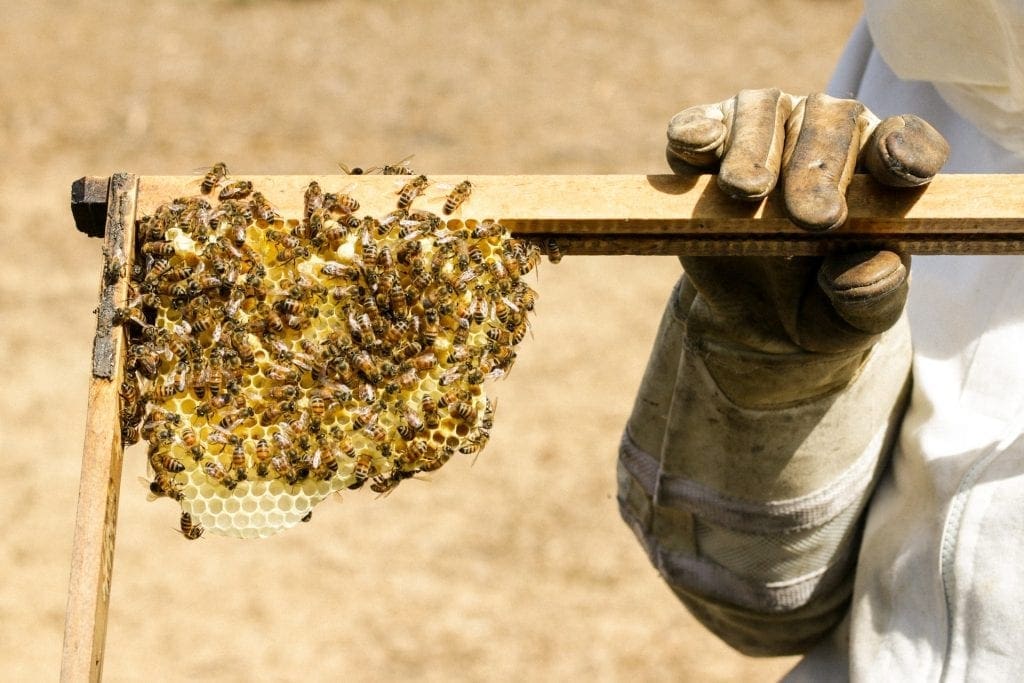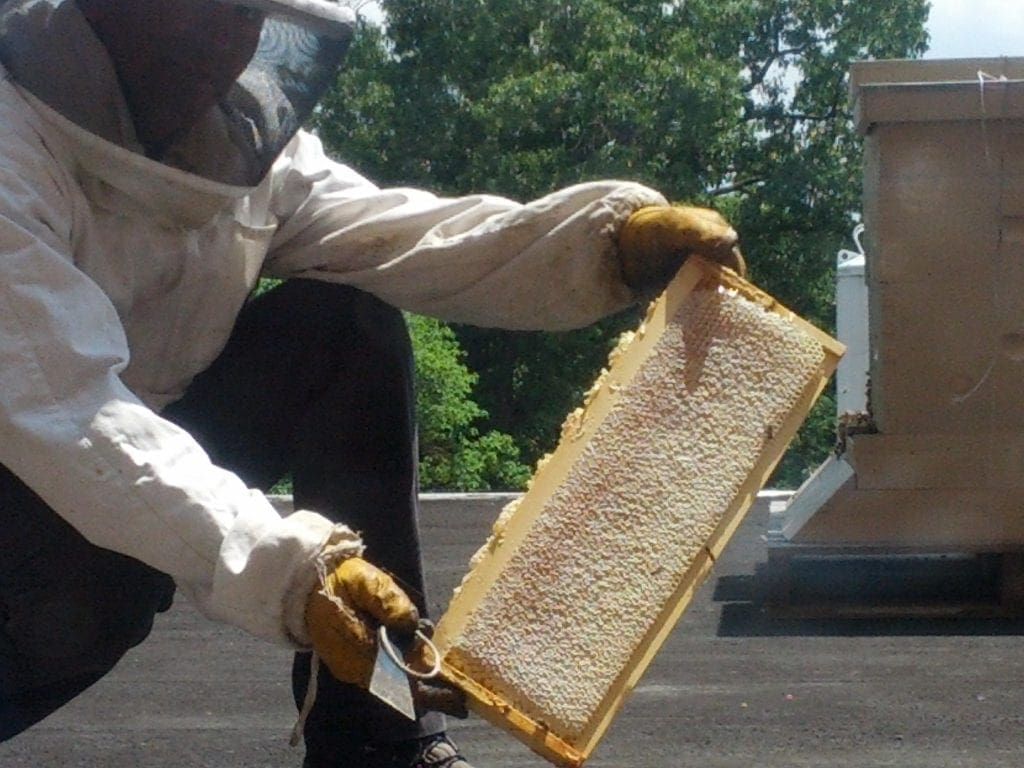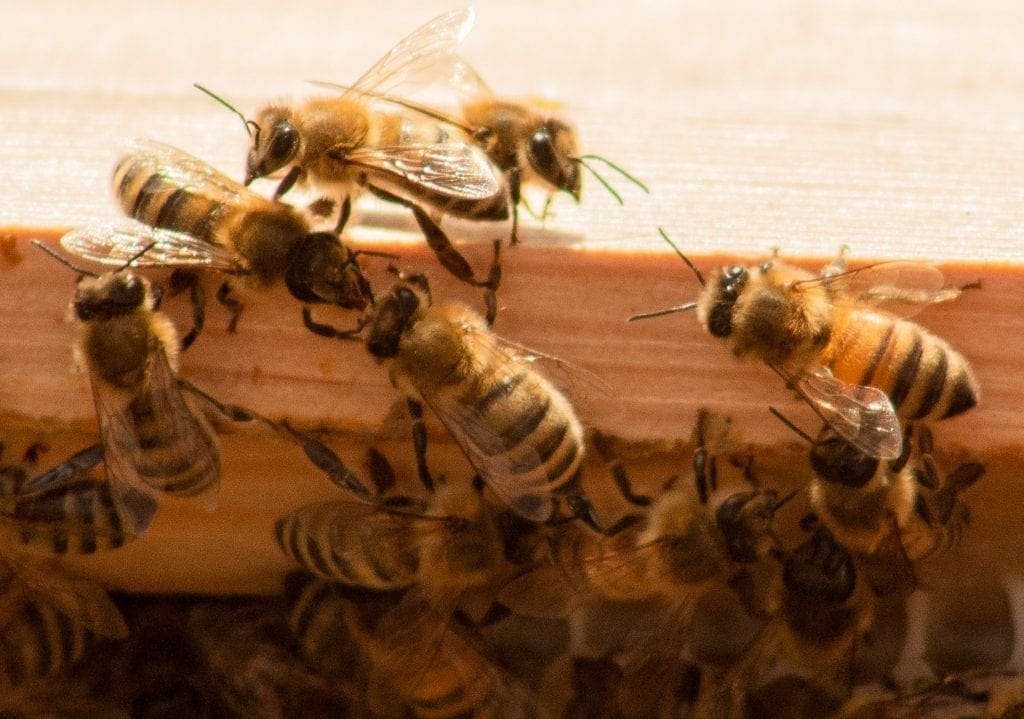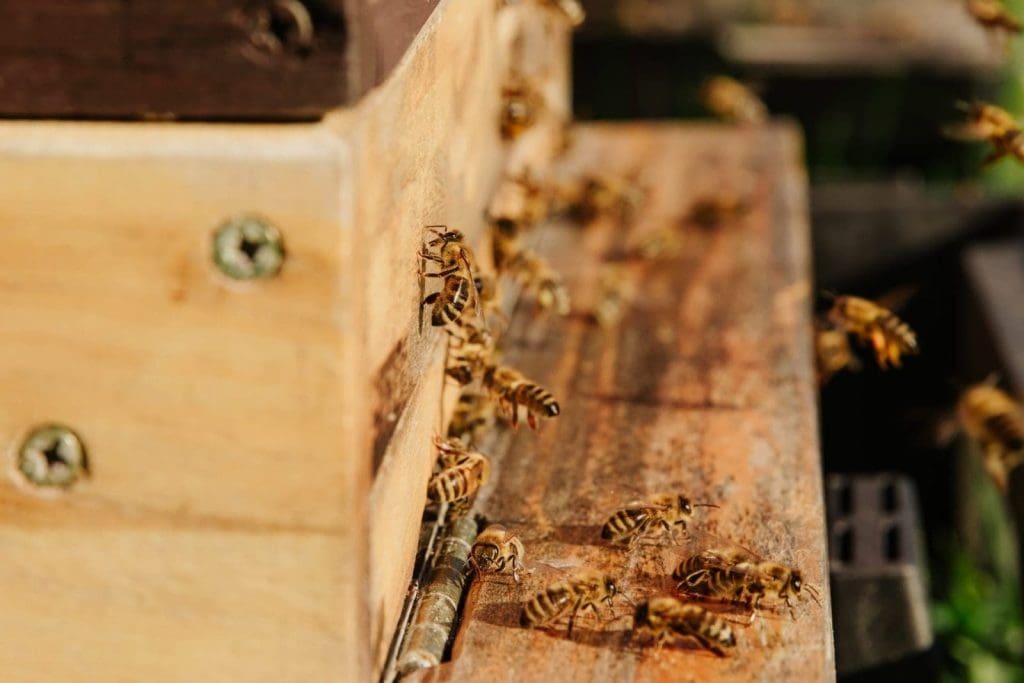For years, the bee population in New Jersey and across the country has experienced a sharp decline. Factors include climate change, increased use of chemical insecticides, and human activity resulting in the destruction of natural pollinator ecosystems. Thankfully, there are many efforts underway trying to restore the population. One of the most innovative ways has been that of rooftop apiaries. Rooftop apiaries have proven popular in many New Jersey urban areas.
What Is An Apiary?
Apiaries are collections of beehives kept in a localized area. Beekeepers regularly attend and maintain them to keep track of the population. They also harvest the honey that the bees make.
These apiaries are completely man-made, as natural beehives rarely congregate within the same square mile of land. Hives are competitive. By spreading across large swaths of land, they don’t have to fight over food and resources.
This may seem to suggest that apiaries disrupt the natural order; in actuality, apiaries are beneficial. Both hobbyist and professional beekeepers can use apiaries to help stabilize the bee population. This allows the bees to continue their pollination activities, leading to the production of honey. Some beekeepers make this into a lucrative profession by selling that honey, as well as beeswax and propolis, a resin-like substance that can help with fighting infections. They even rent their apiaries out to farms to help with the pollination of crops.
Maintaining an Apiary
Apiaries don’t need to be constructed in an open field. So long as there is access to plants within a mile radius of the hive, an apiary can flourish. The New Jersey Department of Agriculture and the Massachusetts Beekeepers Association share similar recommendations as for where an apiary can be built.

Moisture can make the wooden hives of apiaries deteriorate, so both organizations recommend beekeepers build apiaries on higher ground. A water source must be within 25 feet of the hive. Additionally, the area in which the apiary is built should be partially shaded and sheltered from the wind.
Beekeepers should also keep in mind their bees’ flight paths. As not everyone wants to encounter a bee on their daily walk, beekeepers should construct barriers such as solid fencing or hedges six feet high. This will prevent bees’ flight paths from interfering in public space.
Urban Rooftop Apiaries
So long as the above recommendations are followed, apiaries can function in many places—even in urban locations, such as rooftops. The high locations are the perfect, discrete spot for many beekeepers to set up new apiaries for colony maintenance.
Across New Jersey, various locations have employed beekeepers to set up apiaries on their rooftops. One of the most notable examples is that of Overlook Medical Center in Summit, NJ.
Overlook Medical Center’s Rooftop Apiary
The hospital’s rooftop apiary contains six hives, with nearly 30,000 honeybees in each. The apiary project is part of a larger healthy community initiative designed to promote environmental awareness and sustainability.
The bees travel up to two miles in search of flowers and plants to pollinate, even as far as the Watchung Reservation. They then return to their colonies to begin honey production. They are viewable from the hospital’s cafeteria area.
The hospital’s Food Department uses some of the honey in its cooking, while the Gift Shop may package and sell the rest to visitors or to local restaurants. The beeswax that is also produced can make candles, lip balm and lotions.

Beekeeper Joseph Lelinho maintains Overlook’s hives. He’s the proprietor of Hilltop Honey, a company that deals with bee-related products as well as provide businesses with information about how to start and maintain their own apiaries.
At Overlook, Lelinho not only maintains the apiaries, but provides educational opportunities for staff and visitors who want to learn more about the beekeeping practice. He teaches them how to harvest honey and beeswax, and shares how important bees are to not just the environment but society as well. Children can participate in the Bee Healthy program in order to visit the apiary and learn more about the honeybees.
Other Rooftop Apiaries in New Jersey
Overlook Medical Center is just one of many locations that have rooftop apiaries. Lelinho maintains more than 80 colonies across New Jersey, including those found at hotels, residences and other hospitals. Two apiaries are found at the Liberty Science Center of Liberty State Park.
Along with Overlook, Ridgewood’s The Valley Hospital, Pompton Plains’ Chilton Medical Center, and Morristown Medical Center all have their own rooftop apiaries. Along with being a source of extra income and food, these assist in promoting more sustainable practices between hospitals, and are popular with visitors and children.
Hospitals aren’t the only places that use apiaries, either. In Atlantic City, Tanger Outlets recently partnered with the Alvéole beekeeping company to install its own beekeeping colony June. This is part of a larger environmental initiative for the company. Six other outlets across the country also commission rooftop apiaries.

While apiaries alone won’t solve the problem of a declining bee population, their ability to elucidate the problem and spread awareness about the role of bees make them critical in preserving the species. In New Jersey alone, the species’ importance to crop production and harvesting can’t be understated. This reliance on a stable bee population makes apiaries, regardless of where they are located, all the more important.
Feature photo by Bianca Ackermann
Jared Berberabe is a senior at Ramapo College of New Jersey, majoring in English and Literary Studies and minoring in Spanish. When not writing, he enjoys practicing the piano.
- Jared Berberabehttps://thedigestonline.com/author/jberberabe/
- Jared Berberabehttps://thedigestonline.com/author/jberberabe/
- Jared Berberabehttps://thedigestonline.com/author/jberberabe/
- Jared Berberabehttps://thedigestonline.com/author/jberberabe/


